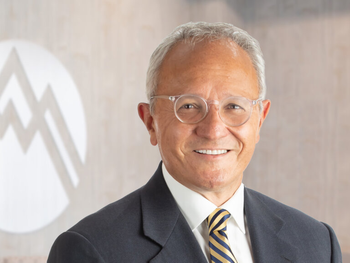Bowlegs Overview
Learn About Bowlegs
Bowlegs is a condition in which the knees stay wide apart when a person stands with the feet and ankles together. It is considered normal in children under 18 months.
Genu varum
Infants are born bowlegged because of their folded position in the mother's womb. Bowed legs begin to straighten once the child starts to walk and the legs begin to bear weight (about 12 to 18 months old).
By around age 3, the child can most often stand with the ankles apart and the knees just touching. If the bowed legs are still present, the child is called bowlegged.
Bowlegs may be caused by illnesses, such as:
- Abnormal bone development
- Blount disease
- Fractures that do not heal correctly
- Lead or fluoride poisoning
- Rickets, which is caused by a lack of vitamin D
Symptoms may include:
- Knees that do not touch when standing with feet together (ankles touching)
- Bowing of legs is same on both sides of the body (symmetrical)
- Bowed legs continue beyond age 3
No treatment is recommended for bowlegs unless the condition is extreme. The child should be seen by the provider at least every 6 months.
Special shoes, braces, or casts can be tried if the condition is severe or the child also has another disease. It is unclear how well these work.
At times, surgery is done to correct the deformity in an adolescent with severe bowlegs.
Summit Orthopedics
Jack Drogt, M.D., is an orthopedic surgeon at Summit Orthopedics specializing in hip and knee arthritis and joint replacement, serving Minneapolis/St. Paul patients. Longtime recipient of Top Doctor from Mpls.St.Paul Magazine, Dr. Drogt is widely respected among fellow physicians and patients. “As a hip and knee specialist, an orthopedic surgeon, and former president of Summit Orthopedics, I’m dedicated to providing patients with the highest level of care available,” he explains. “Our expertise extends beyond orthopedic care. We’re enabling people to live the lives they love.” Dr. Drogt supports underserved communities through One World Surgery, of which Summit Orthopedics is a founding partner. Dr. Drogt is rated as an Advanced provider by MediFind in the treatment of Bowlegs. His top areas of expertise are Osteoarthritis, Bowlegs, Knock Knees, Knee Replacement, and Hip Replacement.
Jatin Prakash practices in New Delhi, India. Mr. Prakash is rated as an Elite expert by MediFind in the treatment of Bowlegs. His top areas of expertise are Knock Knees, Bowlegs, Cirrhosis, Osteotomy, and Knee Replacement.
Dominique Saragaglia practices in La Tronche, France. Saragaglia is rated as an Elite expert by MediFind in the treatment of Bowlegs. Their top areas of expertise are Bowlegs, Osteoarthritis, Hypermobile Joints, Osteotomy, and Knee Replacement.
In many cases the outcome is good, and there is most often no problem walking.
Bowlegs that does not go away and is not treated may lead to arthritis in the knees or hips over time.
Contact your provider if your child shows ongoing or worsening bowed legs after age 3.
There is no known way to prevent bowlegs, other than to avoid rickets. Make sure your child is exposed to sunlight and gets the proper amount of vitamin D in their diet.
Summary: This study aims to explore and compare two distinct approaches to physical activity: functional training and dynamic play exercises, focusing on their effects on children's gross motor skills, physical fitness and balance. A randomized clinical trial will be conducted. The study will be conducted at Primary school of Lahore in a total duration of 10 months. Sample size will be 38. There will be tw...
Summary: While various complex pathologies of the developmental age, such as Infantile Cerebral Palsy or Neuromuscular Diseases, are notoriously considered causes of alteration of locomotor development, it is scarcely known whether conditions much more frequent in the pediatric population, the so-called Paramorphisms or Dysmorphisms, may be associated with more or less noticeable changes in locomotor devel...
Published Date: October 20, 2024
Published By: Neil K. Kaneshiro, MD, MHA, Clinical Professor of Pediatrics, University of Washington School of Medicine, Seattle, WA. Also reviewed by David C. Dugdale, MD, Medical Director, Brenda Conaway, Editorial Director, and the A.D.A.M. Editorial team.
Sheffer BW. Osteochondrosis or epiphysitis and other miscellaneous affections. In: Azar FM, Beaty JH, eds. Campbell's Operative Orthopaedics. 14th ed. Philadelphia, PA: Elsevier; 2021:chap 32.
Williams BA, Winell JJ, Wells L. Torsional and angular deformities of the limb. In: Kliegman RM, St. Geme JW, Blum NJ, et al, eds. Nelson Textbook of Pediatrics. 22nd ed. Philadelphia, PA: Elsevier; 2025:chap 716.
